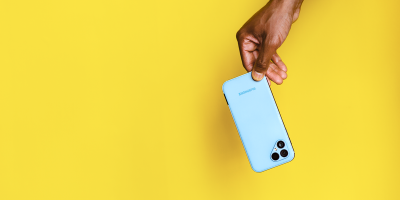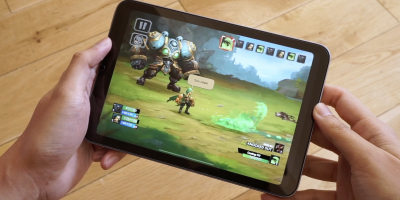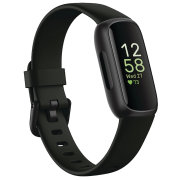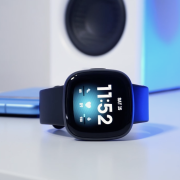 Android is flourishing – nobody can deny that – but its success has to come at the expense of someone. Those someones are stale mobile operating systems that haven’t pushed far enough forward for consumers to take a renewed interest. We know all of this, of course, but just recently an analyst at Gartner – Roberta Cozza – did some number crunching.
Android is flourishing – nobody can deny that – but its success has to come at the expense of someone. Those someones are stale mobile operating systems that haven’t pushed far enough forward for consumers to take a renewed interest. We know all of this, of course, but just recently an analyst at Gartner – Roberta Cozza – did some number crunching.
Below are smartphone market share numbers from Q3 2008, and then Q3 2009, with the % change in parenthesis afterwards:
- Android – 0% to 3.9%
- BlackBerry OS – 16% to 20.8%
- iPhone – 12.9% to 17.1%
- Symbian – 49.7% to 44.6%
- WebOS – 0% to 1.1%
- Windows Mobile – 11% to 7.9%
So Android, BlackBerry OS, iPhone OS and WebOS are all eating Symbian and WinMo market share. I’m a bit surprised Android doesn’t have even MORE market share but once the Motorola Droid/Milestone numbers are taken into consideration and some other models hit the market, that’ll quickly jump. In fact I don’t think it will take too long to double.
I have to say I WAS a bit surprised at how quickly iPhone & BlackBerry adoption is growing. The past year has seen Apple bringing the iPhone to more and more markets throughout the world and you really have to give them credit for their ability to blanket the world with regionalized versions of the iPhone. I would love to see how the American marketshare for the iPhone has risen in that same period.
I’m a bit perplexed how BlackBerry managed to grow their market share so much, especially considering the absence of a truly powerhouse consumer release. The Storm 1 and 2 weren’t exactly wonderful and the operating system hasn’t undergone much improvement. However, compared to WinMo and Symbian, BlackBerry looks legendary. And the company HAS done a great job building and maintaining their brand image and promoting their strengths.
Much like Android, WebOS came out of nowhere and I’m a bit surprised WebOS is even at 1.1% – it’ll be interesting to see how this number changes over the coming year.
So Android, BlackBerry, iPhone and WebOS look like they’re in pretty good position. What is the fate of Symbian and WinMo? Cozza weighed in on Microsoft’s positioning vs. Android:
“[Windows Mobile] remains well positioned within the enterprise,” Cozza noted, but she pointed out that 80 percent of smartphone sales are to consumers.
The analyst said Microsoft would have to come up with something “more competitive and consumer-oriented in 2010 when they announce Windows Mobile 7”, but the new operating system would have to be “something pretty drastic” in order to reverse Microsoft’s declining market share.
“All their licensees — HTC, Samsung, Sony Ericsson — are developing on Android,” Cozza said, adding that previous licensees Palm and Motorola have both abandoned Windows Mobile.
I think this trend will continue but you can’t count Microsoft out. If Windows 7 offers something different, compelling and up to date, they’ll still have ear of the entire earth. But its making somewhere worthwhile and competitive where they’ll struggle the most.
So what do you think marketshare numbers will be like in Q3 2010? Here is my guess:
- Android – 11.3%
- BlackBerry – 21.2%
- iPhone – 19.3%
- Symbian – 35.7%
- WebOS – 2.7%
- WinMo – 5.6%
A few things I would like you to remember:
- I’m just guessing here
- This doesn’t add up to 100 because of other random systems that make up about 5% of the “Other”
- If Apple released an alternative form factor or two, I could see their marketshare growing well beyond 20%
- This assumes Windows Mobile 7 sucks and BlackBerry and WebOS don’t make any drastic moves
What would YOU estimate/guess the marketshare will be like next year?
[Thanks NoOneHereYet]











I think part of the reason Blackberry and WinMo have continued to grow is that allot of people have gone from dumb phones to smart phones. Those new people do not know that much about the operating systems and they just go with whatever. I know several people who jumped from dumb phones to the Storm, and they hate it. I am fairly certain that when they get a new phone, it will not be a Blackberry. I do think your numbers look pretty good.
What exactly is the criteria for a smartphone ? i mean most symbian phones are more like dumb-phones rather than smart-phones, are they actually counted or what ?
Microsoft have to release something almost revolutionary to get this market share back… I don’t see a lot of manufacturers giving up 15 to 25$ license by device sold to Microsoft when they can keep it for them with Android…
I mostly agree with your guess but I think WinMo would perform a bit better. And you should add Maemo – Nokia is still the biggest handset maker and they are replacing Symbian in their high-end phones with Maemo.
@Kappy79: WinMo has declined, not grown. I’m part of that decline as I just defected from WinMo to Android. But I do agree w/ your comment about a lot more Joe-6-packs going from dumb phones to smartphones over the last couple years. This is due to big price drops (and big carrier subsidies) that have made previously very expensive phones affordable to more people. I know plenty of people these days who have recently switched to a Blackberry or other smartphone, and really don’t use hardly any of the ‘smart’ features of the phone. They just buy them because the prices have come down, and it’s the ‘in thing’.
I suspect that the release of WinMob7 will at least cause a temporary bump in sales. And I will say that from discussions of others and my own experience, there are a lot of us old PalmOS users who bemoan the lack of a really easy to use, “Zen of Palm”, PIM apps on ANY current platform (including webOS of all things). If WinMob7 has got a better set of PIM apps, they might start to pick things up again for people like me and others who want a smartphone more for it’s organizational and work related abilities and less for it’s media/game/social networking abilities.
For at least some of us, it’s not a toy; it’s a tool.
Actually, I think WinMo has had it. Release 6.5 is a completely pathentic attempt to save the sinking ship. The *only* thing I’ve seen good with WinMo is HTC’s UI on top of it. Unreal that HTC can come up with a better UI on top of 6.1 and 6.5 that looks basically the same on both and makes WinMo truly functional and MS can’t find their rear with both hands. Unless 7.0 is this completely jaw dropping UI complete with a real app store, MS can kiss any marketshare goodbye. They’ve had two years and all they came up with so far is a few icons in a circle and STILL USING A STYLUS! Can anyone say “lame”?
Blackberry is growing because they have a easily recognized brand. People who had a Curve look to stay with BB when they upgrade and opt for the Tour, Bold, etc. Even if they don’t have a great phone that appeals to power users, they have one that appeals to “regular” consumers
Not only that but HTC replaces mobile IE with the Opera browser. If the whole point of going with WinMo is to have the familiar Windows experience as on the desktop and the ‘trust’ of using Microsoft products, you’re not really getting that with Sense+Opera.
The only thing that could really make a difference is if MS came up with the Xbox phone. They have to do it themselves because nobody else wants to pay for a license anymore.
Microsoft assumed enterprise users would naturally go with WinMo because Microsoft products are used for business. But those went with Blackberry because it is more secure and it’s not like you’re getting the real MS Office on a WinMo phone.
I think the estimates are off, the iPhone numbers are too high, this will level off… the fad / novelty has already begun to dissipate.
The rule of Trend and what is “in” will prevail as usual, I’m sure everyone remembered when everyone had to have a RAZR. It’s getting old already.
heres my guess,
Android – 12.5%
BlackBerry – 22%
iPhone – 17.8%
Symbian – 34.5%
WebOS – 3.4%
WinMo – 5.1
so whats my prize when it turns out Im right….
I am a biiig Android fan – early adopter of the G1 and all that – but I believe that your numbers for iPhone share in 2010 seem to be too low to me. :-)
I remember the ‘zen’ of Palm. Unfortunately that broke down once the user wanted to do something interesting. Then he had to look for all kinds of weird hacks. In the end, he was left with an outdated OS that was even harder to use than pocketpc after all the hacks.
We see this again and again with simple systems. They just can’t scale up and the user gets left behind. Now look at Palm. Once upon a time, everything was called a Palm Pilot and it had thousands and thousands of apps.
@Rob
I have seen estimates of 30 million Android phones to be sold in 2010, up from 9 million in 2009. I am not sure what % this translates to but it is awesome growth. Already, Android is released on 12 phones in 30 countries, according to last published info.
By the way, any update on when Motorola Milestone/Droid will be launched in UK? I had seen it listed SIM free at £449 on expansys.com recently but that page has been removed. Seems logical that T Mobile would carry Milestone on contract as it is a Google Experience phone like the G1. Would be awesome to see some Verizon type advertising in UK: like the iDon’t commercials!
Your thoughts appreciated?
I also think WinMo is dead. Not only are the end users dropping it, but we are starting to see major phone manufacturers do so as well, or at least put a much larger focus on Android- Motorola, Samsung, HTC… Worse yet (for MS), new players such as Dell are going straight to Android.
One more thing, if Google can get full native exchange support right on Android (not quite there yet as of 2.0, to my dismay) we’ll see Android market share make BIG gains, at the expense of WinMo. We’ll see what the upcoming OTA updates bring.
iphone will be growing as ever, because it offers the best over all user experience. biggest looser will be symbian, cause does not have much to offer. nothing really. winmo will loose more, but’s already done to be hones. Android will probably have about 10% cause it’s still kind of geeky and will have problems the more phonescome up. gets harder to develeop for, so google need to pay the developer cause it wil be a pita to write apps for 50 different devices.
I think Google is missing the boat in 2.0 by excluding full encrypted exchange support. There is a large block of corp users that would love to drop BB or WinMo and get something like the iPhone or Android but poor security implementation is preventing their IT dept from letting them. I say this based on the number of people at my work that now carry both an iPhone/Android(personal) and BB(work). They do this not because they want to have 2 phones but because the only approved device to get corp email is the BB.
Android should focus on BB features. Once it has Flash, it will suck up all the casual iPhone users who spend all their desktop time on facebook apps…I think iPhone users will be very jealous if their phone is the only phone that doesn’t support Flash.
WiMo will only last as long as a manufacturer uses it, and that will eventually dwindle down to nothing. I cannot see anyone continuing to employ WiMo. Verizon is a superior service to att, so I suspect users who went to att simply for the iphone will move back. Essentially android, being new, will take away from the others.
Numbers showing 3rd Q 2009 market share does not include the motoDroid, which came out in Nov?…is this “calender year 3rd Q” stats?
As long as the customer gets better service with more products on smart phones at a lower price (even with a subsidy with ads), I am glad Google is moving forward. I am not an Andorid user, but its existence is making all other move in their direction, which I applaud.